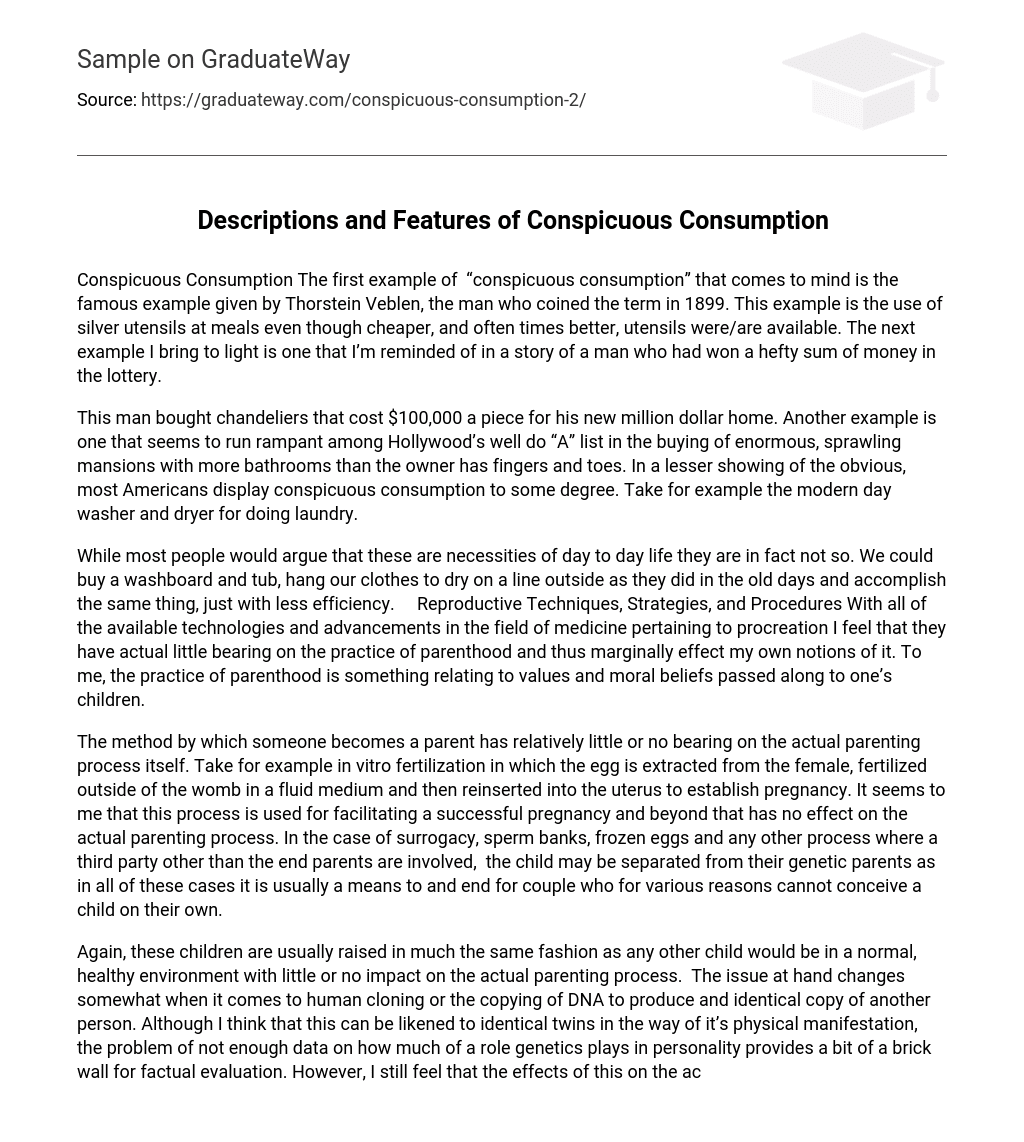Conspicuous Consumption The first example of “conspicuous consumption” that comes to mind is the famous example given by Thorstein Veblen, the man who coined the term in 1899. This example is the use of silver utensils at meals even though cheaper, and often times better, utensils were/are available. The next example I bring to light is one that I’m reminded of in a story of a man who had won a hefty sum of money in the lottery.
This man bought chandeliers that cost $100,000 a piece for his new million dollar home. Another example is one that seems to run rampant among Hollywood’s well do “A” list in the buying of enormous, sprawling mansions with more bathrooms than the owner has fingers and toes. In a lesser showing of the obvious, most Americans display conspicuous consumption to some degree. Take for example the modern day washer and dryer for doing laundry.
While most people would argue that these are necessities of day to day life they are in fact not so. We could buy a washboard and tub, hang our clothes to dry on a line outside as they did in the old days and accomplish the same thing, just with less efficiency. Reproductive Techniques, Strategies, and Procedures With all of the available technologies and advancements in the field of medicine pertaining to procreation I feel that they have actual little bearing on the practice of parenthood and thus marginally effect my own notions of it. To me, the practice of parenthood is something relating to values and moral beliefs passed along to one’s children.
The method by which someone becomes a parent has relatively little or no bearing on the actual parenting process itself. Take for example in vitro fertilization in which the egg is extracted from the female, fertilized outside of the womb in a fluid medium and then reinserted into the uterus to establish pregnancy. It seems to me that this process is used for facilitating a successful pregnancy and beyond that has no effect on the actual parenting process. In the case of surrogacy, sperm banks, frozen eggs and any other process where a third party other than the end parents are involved, the child may be separated from their genetic parents as in all of these cases it is usually a means to and end for couple who for various reasons cannot conceive a child on their own.
Again, these children are usually raised in much the same fashion as any other child would be in a normal, healthy environment with little or no impact on the actual parenting process. The issue at hand changes somewhat when it comes to human cloning or the copying of DNA to produce and identical copy of another person. Although I think that this can be likened to identical twins in the way of it’s physical manifestation, the problem of not enough data on how much of a role genetics plays in personality provides a bit of a brick wall for factual evaluation. However, I still feel that the effects of this on the actual process of parenting would be marginal at best.
Lastly, my personal beliefs of parenthood are no so much effected by my religious, biological or legal concepts so much as my view of what is good parenting and what is not. That’s to say, do the parents truly love the child? Are they instilling good social and persona values in the child? These are the kinds of things that influence my concept of parenthood.





